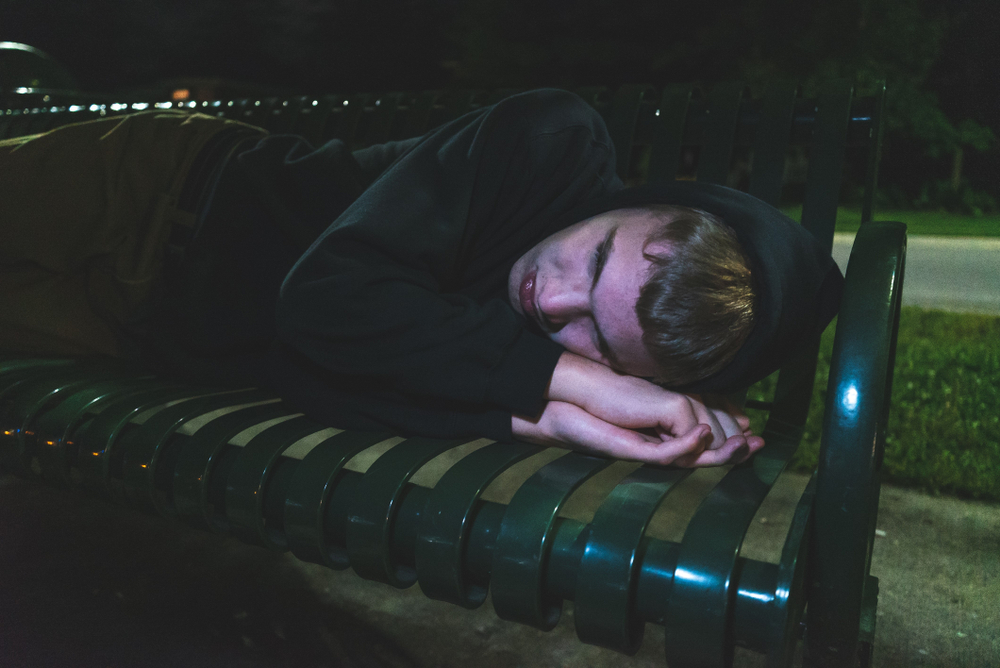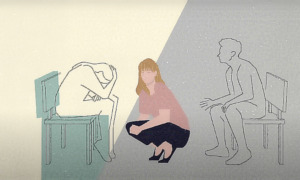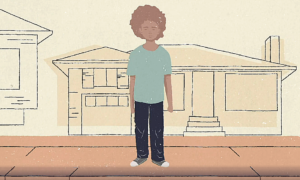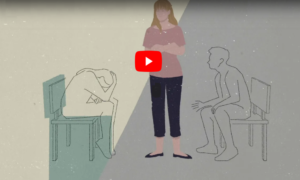
mooremedia/Shutterstock
.
In cities across America, being homeless puts you at increased risk for a criminal record. You can be charged for behaviors that result simply from being homeless or poor, such as sleeping on a sidewalk or in a public park, being out at night past a certain time or trespassing on someone’s property, even when you may not realize you are trespassing. These charges can lead to additional consequences or new charges if you do not have the money to pay accompanying fines and fees.
Studies estimate that over the course of a year, 1 in 10 young people between the ages of 18 and 25 and at least 1 in 30 youth between the ages of 13 and 17 experience homelessness. Many of those are unaccompanied. In Texas, that translates to an estimated 60,000 13- to 17-year-olds and nearly 300,000 18- to 25-year-olds who experience homelessness over the course of a year. Our research and interviews with young people indicate that if forced to choose between sleeping on the street or going to a shelter, many youth will opt to spend the night on the street.

Brett Merfish
Youth feel at risk in adult shelters, and many communities in Texas don’t have dedicated shelters for young people. Criminal charges associated with being young and homeless create additional challenges. When young people end up with a criminal record for survival behaviors like these, it is often hard to clear these records through sealing or expunction, creating barriers to getting housed and moving forward.
In Texas, the record-clearing process is confusing and time-consuming; it is not automatic, despite popular belief. Youth experiencing homelessness need stability to find a permanent home, but the criminalization of homelessness keeps young people on the streets.
Laws that criminalize homelessness and particularly youth experiencing homelessness — runaway laws and curfew ordinances — may sound like they’re protecting youth, but research has proven otherwise. These laws push kids into the criminal justice system, rather than connecting them with services and supports to help them, like trauma-informed therapy, rehabilitation for substance abuse or housing services. This involvement with the criminal justice system has been shown to further push young people into homelessness and increases their risk of dropping out of school.
Austin, San Antonio change laws
To stop perpetuating homelessness, our communities must eliminate laws and ordinances that criminalize homelessness, prioritize connecting youth with services and supports that meet their housing and other needs, and ensure that missteps do not mar young people’s records and constrain their future opportunities.
Some cities in Texas are taking steps to do just that. Austin has recently decriminalized homelessness by making it legal to sit, lie or camp in public places, as long as the person is not blocking the walkway or somehow being a public safety or health hazard. Austin’s change came after a city audit found that these laws make it harder for people experiencing homelessness to find permanent housing due to their ensuing criminal records and/or arrest warrants. The city also changed the ordinance that criminalizes panhandling so that it’s only illegal if the panhandling is aggressive. As Austin’s mayor, Steve Adler, put it: “Want to stop people sleeping in public spaces? House them.”
In Austin, the City Council also voted to eliminate its juvenile curfew ordinance, which gave kids Class C misdemeanors for being outside their homes at certain times of day or night. San Antonio took a different approach by revising its juvenile curfew ordinance — instead of criminalizing youth who are out past curfew, peace officers bring the kids to a Juvenile Curfew Processing Center that is staffed by social workers and case managers. Both cities recognized that giving kids criminal citations was not addressing the root issues behind why they were outside at night and, instead, exacerbated their situation.
Beyond decriminalizing homelessness and ensuring record clearing is accessible, municipalities and other local stakeholders must actively work toward developing a continuum of community-based services and supports that will assist diverted youth in securing housing and assistance to meet basic needs, as well as addressing any mental health, substance abuse or other treatment needs. Where gaps in the continuum exist, stakeholders should develop a plan for addressing the gap. This — not criminalization — is a more effective way to end youth homelessness.
By supporting homeless youth through the elimination of ordinances that criminalize them and creating a continuum of services that take the unique needs of youth and young adults into consideration, states and local municipalities will be more successful at helping our youth find long-term, sustainable stability.
Brett M. Merfish is an attorney and the director of youth justice at Texas Appleseed, a public interest justice center.






























